In my first piece on hunting I tried to articulate some of my thinking on the morality of hunting:
In this piece I hope to get across to you a sense of how I experience life in the urban vs natural environments. The sense of alienation and disembodiment in postmodern urban society, what the mind-altering experience of the hunt is like, and why it is an indispensable part of life for those of us hunters who experience weird existential crises from a purely urban life.
I don’t know how good this piece will be. But here goes. If you enjoy my writing and are inclined to do so, please buy me a a coffee!
Feel the great throbbing terrene
pulse in thy body beat!
Conscious again of the green
Verdure beneath the feet.Callous to pain as the rose,
Breathe with instinct’s delight
Live the existence that goes
Soulless into the night.
- Atavism by John Myers O'Hara
There is something about postmodern urban life that is disorienting and alienating to me.
In the course of everyday urban life I feel more akin to a disembodied computer algorithm than a full-bodied, warm-blooded, embodied human being.
There is not enough sense-input, or the input is not varied enough. Most of it is not of the right kind or quantity to meet some hidden absolute threshold, and properly engage my biology. I rarely actually use my senses in an embodied, “evolutionary” manner.
There is a particular flavor of hardship missing from this environment. Life is hard, don’t get me wrong, but there is a biological immediacy missing from it. My body never gets the sense that it has to actually survive, through a kind of battle with the environment. That’s a good thing—I know. I am grateful for what modernity has done for human quality of life. But in me it raises some atavistic instinct.
Technology perfectly regulates my environment. Homeostasis is outsourced. I rarely get cold enough to shiver for warmth. I rarely get hot enough to instinctively and desperately seek out shade and water, the way animals do. If my body temperature does get outside of the artificial augmented homeostatic bounds, it’s in the briefest or most contrived manner—a trip between air-conditioned buildings, a workout in a fluorescent-lit gym, a sauna, or a swim in a chlorinated pool.
My eyes never search, strain, or focus in the way it feels they were designed to. A laptop screen. An iPhone. Paperwork. A vaguely unfocussed glance up the street for traffic. I never have to look further than 100 yards, nor do I even have much opportunity to do so. All light is filtered through glass, beamed artificially, reflected off of smooth surfaces. Light is rarely dappled.
I almost never actually use my sense of smell in any intentional way. It’s a meaningfully obsolete sense. I smell things by accident. I’ll catch a whiff of a neighbors cooking. Notice the smell of a dog shit on the sidewalk. Exhaust smoke, maybe some pollen in spring.
It’s the same with audition. I hear things, of course. The hum of traffic. The TV. I listen in conversation. I listen to music. But I rarely, if ever, meaningfully strain my ears. Its a very specific feeling, to search intently with your ear. You can almost feel your tympanic membrane turning and tuning like a satellite or focus dial. It’s just another function that goes unused in civilized life.
The entire built environment is predictable and rigid, flat and regular. Vestibular calculations1 are obsolete—balance is a given. I might as well exist on a travelator. The only irregularities: a curb here, a crack there—most hazards are painted or signposted so as to catch my eye and help me avoid even a minor trip or stumble.
In this world my body is a vessel which carries “me” around, from abstract task to abstract task. My body only suffers and works and survives the way a zoo animal’s does. It’s artificial and instrumental.
I wander the conditioned aisles of my supermarket and pick out my food—it might as well be tossed to me over a high fence by some unseen zoo keeper. What is it? What’s in it? Where did it come from? Who knows. It’s inert, abstract. There are no natural instincts used in the acquiring, no hormones or endorphins in the achievement. No reckoning with the reality of my life and my body, and all the implications therein. Just throw it in the basket. Peel off the plastic wrapper. Slap it in the pan. Barely think twice about waste.
Something about all this, as I said, is so disembodied and alienating. There is a lack of naturalness and immediacy, which my body notices. The many illusions of modern life cause me to forget about the march of time. Or rather, I don’t get a firsthand sense of the different timescales of existence. I rarely see the stars, a view of which is one of the most effective illusion-breakers. I barely realize I am a living, finite human animal. I am something else—an economic unit, a political agent, a disembodied conscious algorithm.
That is—until I go to bed. For some reason, in the quiet of my bed I do realize what I am and what this is. I am prone to panic attacks. I think about dying and what it’ll be like. I can feel my heart, just a rubbery ball in my chest. It could stop beating any second. What does any of this mean? Why am I alive? What is life?
I’m so removed from it all—the natural course, the reality and experience of terrestrial life—that when the illusion breaks and reality finally touches me, it’s horrible.
But in the bush, or in the mountains, hunting:
My awareness moves from wherever it usually sits—far back in my head—to the front, right up behind my eyes. I am fully embodied, interoception, proprioception, and exteroception all heightened the same way an animal’s must be.
There is a richness of sensory-input, the kind upon which the human sense organs were fine-tuned by evolution.
Immediately, homeostasis is a perpetual problem. First and foremost, temperature regulation. I am too hot and too cold by turns. The demands change dozens of times throughout a single day. I get too hot and begin to sweat, which turns to ice in the breeze and I am suddenly too cold. I went from sweating to shivering in about 30 seconds. My body is reacting to everything constantly. I get exposed to it all, the sun, wind, rain, snow, heat, cold, humidity, aridity.
I stalk through the forest, scenting the world around me like a hound. I take short sniffs repeatedly, like puffing on a pipe. If you take long slow sniffs, you stop smelling properly after the first second or so. I don’t know how I know that, it’s just instinctive.
I can smell the change in the moisture level of the ground as I walk. When I smell game, I get a sense of the “warmth” or “coldness” of the scent. It gives me some idea of proximity.
On this unsteady terrain, I dearly depend on my vestibular calculations. The small muscles in my feet and ankles make constant stabilizing corrections. It’s these which fatigue first for they go so unused in ordinary life. Nothing is regular. Unsteady, undulating ground, sheer slopes. Slippery moss, mud, ice, frost, scree. I frequently have sprains, bruises, cuts, stings.
I spend hours searching: scanning distant terrain, peering intensely through dense, dark bush. My eyes become so attuned to the colours and the shape of the vegetation around me, I can spot a deer by the twitch of it’s ear protruding from behind a bush.
I really listen, too. Often I am forced to freeze mid-step, and strain my ears—frozen and prickling with tension. I can sense something is in the bush with me, but I don’t know what or where. I listen to the blood rush in my ears, wind rustling, heart pounding, and I can still pick out every little snap and rustle of the ecosystem around me. Sometimes you have to stand frozen and listening for extended periods of time, and its strangely riveting. These are some of my favorite moments—my brother and I, stalking through the bush. We hear a rustle, and we freeze. The bush is often so dense that vision is useless, so we stare at each other wide eyed and mouths agape, listening (this is a weird behavior I have noticed, when you listen hard your mouth naturally hangs open—it helps somehow). Sometimes we stand like that for minutes upon minutes, just listening to every miniscule sound of the environment.
I retreat to leeward faces on windy days. On still days I can feel even the slightest movement of air, especially on the vellus hair on my neck. They’re so sensitive a breath of air can snap my attention like an alarm. Many times I have been staring into a valley with my brother when suddenly we both startle up and look at each other. We realize the wind has changed. We must have both felt a slight tickle on our neck, and the change—though so minor—forced it’s way into our consciousness with a strange urgency. It’s a catabatic wind; as the air cools it becomes dense and gently slides downhill into the valley we are watching. It can spoil a hunt.
When I am “on to” a deer, I prickle with excitement and tension. Sometimes it happens fast. You spot the deer as it spots you. It is already on the move. You have seconds to find a shooting rest and let out a “mew” call to halt the animal right before it steps into the safety of the bush. It pauses and looks in your direction, you have only a few seconds to take the shot before it departs, so “there is no time for emotional dawdling. It is a time for unerring judgment. It is a time for action and precision and discipline. It is a time to do what millions of years’ worth of evolution built us to do.”2
Other times it takes hours. You have to sit at the ready, waiting for your target to stand or turn, to finally present an adequate and ethical shot. I have held a shooting-ready position for so long—flat on my belly with my head tilted back to look through my scope—that my neck was ruined for weeks afterwards. But eventually the moment calls for it, and you do it.3
It takes discipline to remain calm, and to follow through. When I shoot a deer and I see it drop, I exhale hard. The main feeling is one of relief rather than enjoyment. I often laugh, but it’s usually more out of a release of uncomfortable tension than out of happiness at a kill. When I get to my deer, I push my hands into its coat and feel it’s fading warmth. I feel weird—sad, grateful, happy, excited, regretful. Very often I feel intimidated. I will have to carry this heavy animal a long way on my back, over some pretty rough ground.
I butcher the deer, disassembling it entirely. Four quarters separated: the two fore and the two hind. I empty the abdomen, often taking the sheet of caul fat, sometimes the kidneys, the liver. I always take the heart, assuming my bullet didn’t destroy it.
It’s weird to look at the red puddle on the ground, the organs, skin, and leftover bones (I sometimes take some of those too, for bone broth).
I often get the feeling in those moments that I am looking down at my own organs. It brings into clear relief the fact that I am similarly made up merely of those same simple parts. Soft parts, fleshy parts, bones. One day I’ll be disassembled. I’ll go from animate to inanimate in an instant, just like that deer. And something will eat me, too.
When I hold the deer’s heart in my hands, I’m looking at a mirror of my own heart still pounding in my chest. I have the weirdest moment of understanding and self-awareness. A real perception of what I am. And unlike these moments as they come to me in bed in the city, it comes now with a profound sense of acceptance and gratefulness, a sense of the beauty of it all.
On the journey back to camp, I occasionally pass the skeletons of other deer, some I have killed, some which died by unknown means. The bones are bleached and mossy, being swallowed up by the grass. A living thing died right there, an animal much larger than I. It seems tragic, but in reality it’s of no major consequence. The world moves right on, the mountains sit the same as they ever were. The hawks and insects and bacteria strip the carcass, what’s leftover dissolves into the soil and nourishes the plants. Other deer eat those plants. That’s basically how it’ll go when I die4. But again, seeing the truth of this out here in the mountains, it’s not scary or sad. It’s kind of beautiful.
When I make camp, it’s in full view of the vivid, terrifying celestial array. Looking into the unpolluted cosmos, I feel like an animal that’s lived safely in a box all it’s life and the top has suddenly been pulled off, exposing me to the full terror of infinity. But it inspires awe and appreciation and wonder, more than terror. Shooting stars, the milky way, satellites, the moon in all its phases. You can’t help but be permanently distracted by it, as long as a fire is not lit. If a campfire is lit, it incessantly draws your eye—its the only thing that can compete with the stars.
When I go to bed in the mountains, there is still the vague confusion, the wonder at this life. But I have no fear. I feel personally embedded in the web of something bigger than me. Something that operates on an infinitely broader timescale, and it doesn’t really concern me. It shouldn’t feel comforting, it should feel impersonal and indifferent. But it doesn’t.
Spending time in the mountains, hunting and harvesting my food, I get to contemplate all the processes of life, stripped of illusions and socially constructed obscurities. I get to participate bodily in these processes, taking responsibility for my life and the death it requires. In doing so, I attain a clearer view of myself and my own eventual death.
And I get exposed to the most simple, beautiful experiences. I watch in the pre-dawn twilight as cold fogs coalesce out of thin air and drain from the sky into valleys and basins, slowly splashing back and forth like water in a tub. I get a tutorial in all the forms of visible moisture5. I listen to Sika whistle and red deer roar against the clash of antlers in the night. I watch hawks hover in an anabatic wind, close enough to see them blinking and scanning the ground. I get to watch Tomtit parents fly back and forth from their nests: they fly in with tiny mouths full of twitching, struggling insects, for their hatchlings; they fly out carrying the hatchling’s fecal sac, leaving their nest pristine. I get to suffer torridity, wind, rain, frosts, blizzards. I get to see what my body is capable of while rationing food and water for unknown days ahead, worrying about getting lost and exposed. I look down on endless waves of mountains in fading rows, and look up from forested gullies so steep and dense they remain eerily dark even at midday.
After a days-long hunt in the mountains, it feels so strange returning to the city. Like waking up foggy-headed from a dream.
I spend my evenings after work making sausages, bone broth, and packaging mince. I deliver care-packages of meat to loved ones, occasionally to strangers in need.
When I get meat out of the freezer, I can remember the specific animal we are about to eat (not always a deer, maybe a pig, chamois, goat). I remember the specific valley or ridge upon which it died. The time, the temperature, the season. I remember butchering it and loading up a heavy pack, grunting and sweating my way up and down ridgelines to reach my car or my camp.
As I cook it, I feel all those feelings I felt at the kill. I know it’s probably placebo, but when I eat it I literally feel a charge—a healthifying feeling I don’t get from store-bought food. Like I am not only consuming the meat, I’m also consuming the mountain sunlight and the crisp frosted grass, I’m reabsorbing the energy I expended hunting the animal. I am actively recycling a part of the awe I felt that day, feeling again that feeling of embeddedness in some larger existence.
That’s what it’s like to be a hunter. Or at least a hunter who’s maybe a little crazy. I entered an existential crisis when I was very young, I never really got out of it.
I do know that for a lot of other hunters, it’s a much simpler thing, and they might think me neurotic or melodramatic.
But I also know that there are many others like me, who feel that hunting entails “taking a step back, observing nature, and contemplating the processes of life… that is not possible in an abstract way, but only through bodily participation… accepting uncontrolled organic processes that may or may not demand one’s life but that almost certainly go beyond the limits of the technically-designed life that postmodern men and women desperately hold on to… hunting is more about this puzzlement than anything: a man must enter it in order to discover his own role in nature”.
If you enjoy my writing and are inclined to do so, please buy me a a coffee!
“Vestibular calculations” is a nod to The Road by Cormac McCarthy:
“He rose and stood tottering in that cold dark with his arms held out for balance while the vestibular calculations in his skull cranked out their reckonings. An old chronicle. To seek out the upright. No fall but preceded by a declination... Upright to what? Something nameless in the night, lode or matrix. To which he and the stars were common satellite. Like the great pendulum in its rotunda scribing through the long day movements of the universe of which you may say it knows nothing and yet know it must.”
This, and the quote following, come from Steven Rinella’s Book “Meat Eater: Adventures from the Life of an American Hunter”, a great intro on the experience and philosophy of hunting.
“And in the act of doing it, you experience the unconfused purity of being a human predator, stripped of everything that is nonessential. In that moment of impending violence and death, you are gifted a beautiful glimpse of life.“
Except that legally they’ll have to embalm me, which I hate.
A nod to another one of my favorite books. “Through the window, Ada had been given a tutorial in all the forms of visible moisture – light haze, dense valley fogs, tatters of cloud hanging like rags on the shoulders of Cold Mountain, grey rain falling straight down in streaks all day as if old twine hung from the heavens.” Charles Frazier, Cold Mountain.

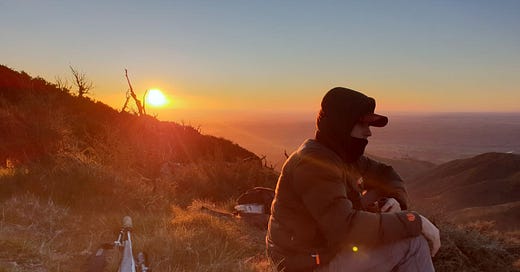


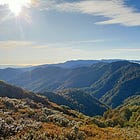

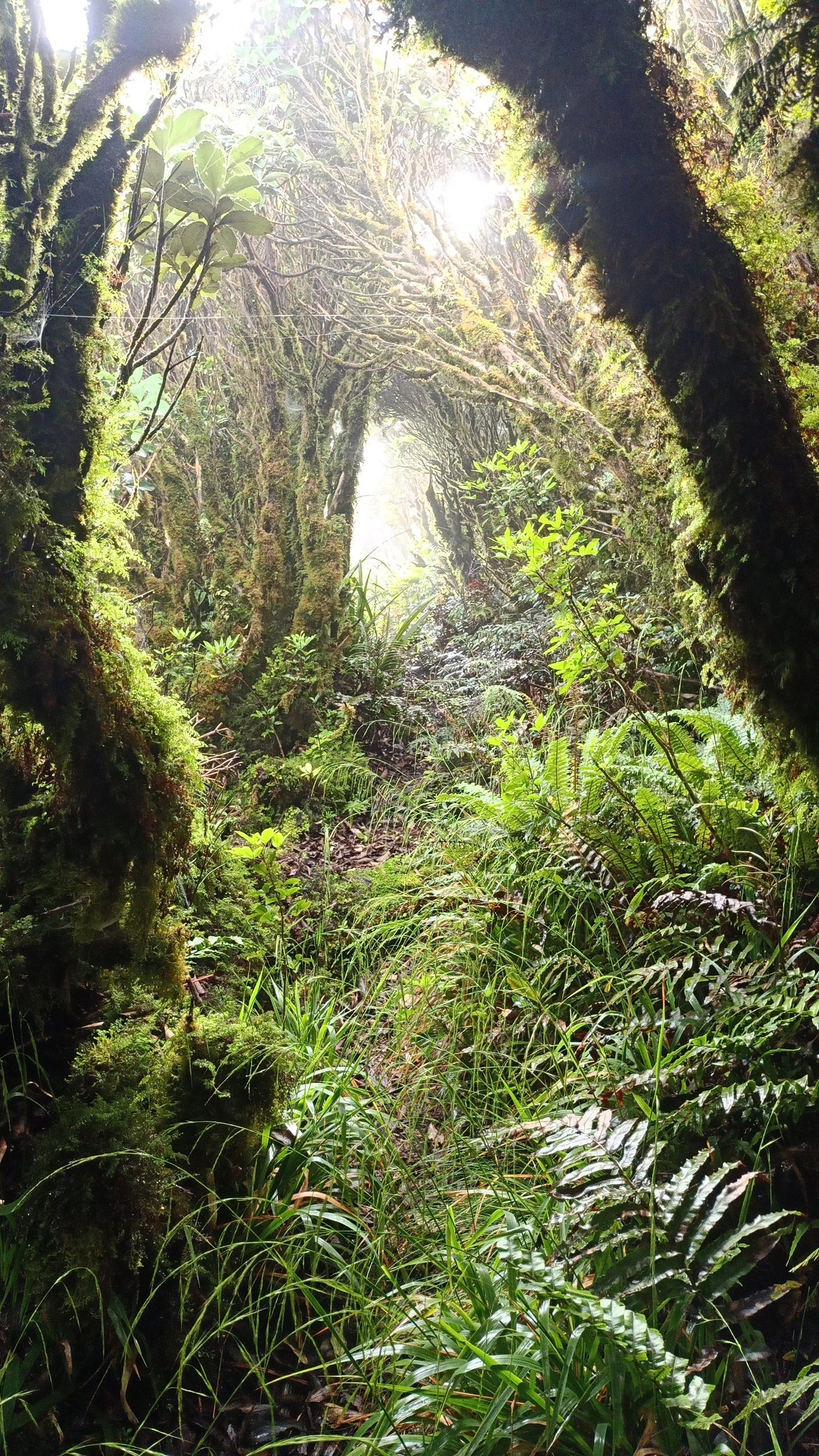
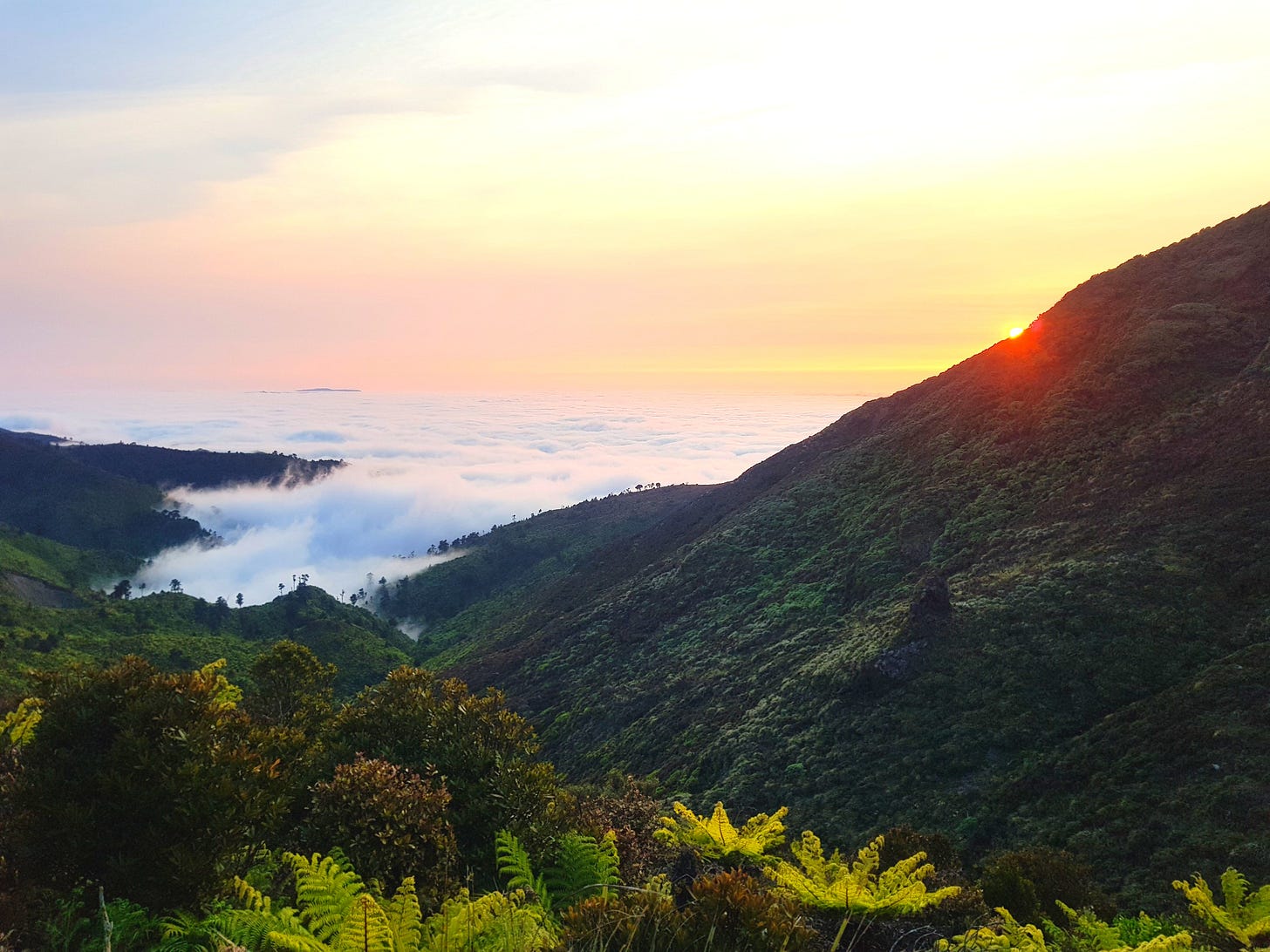
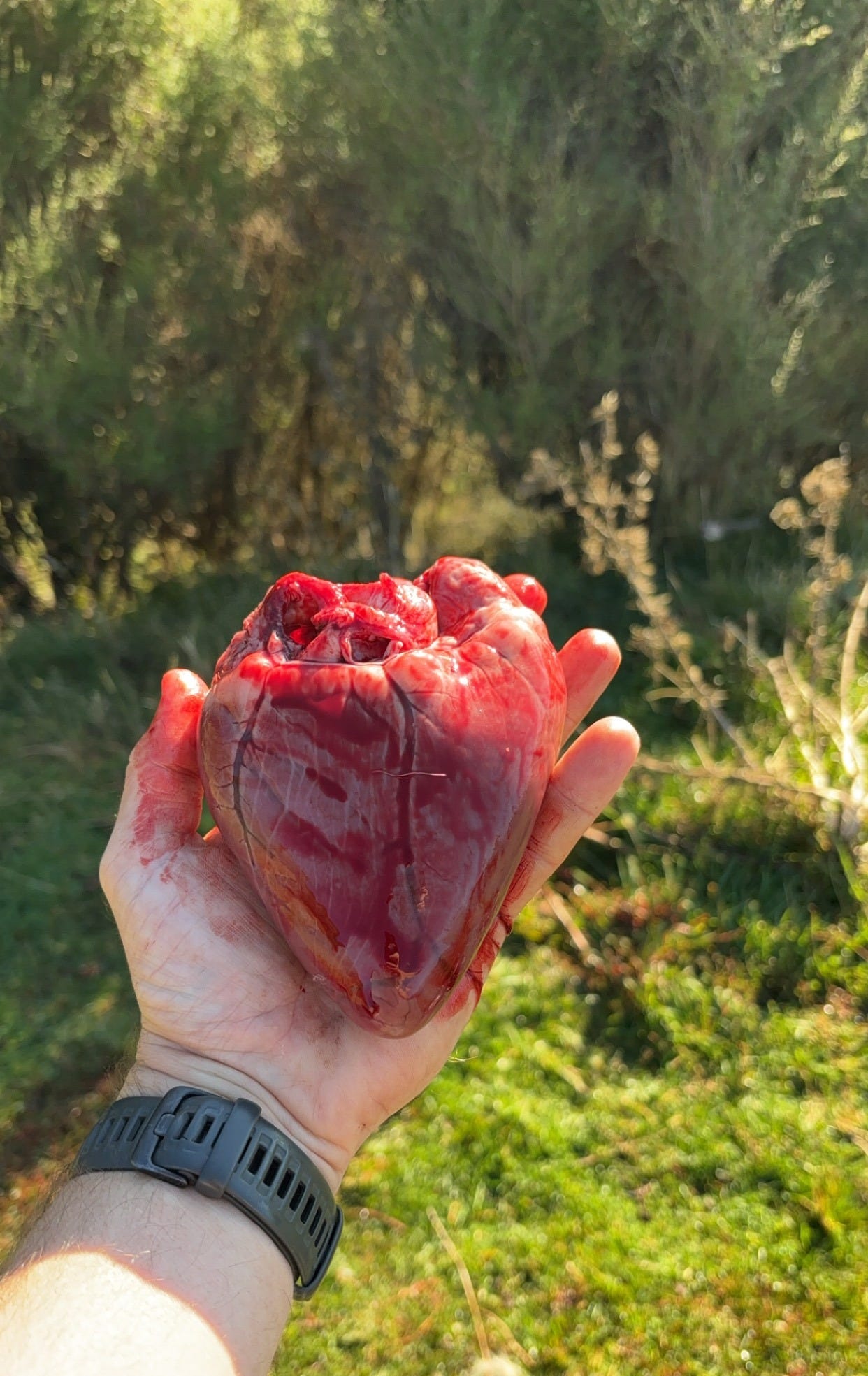
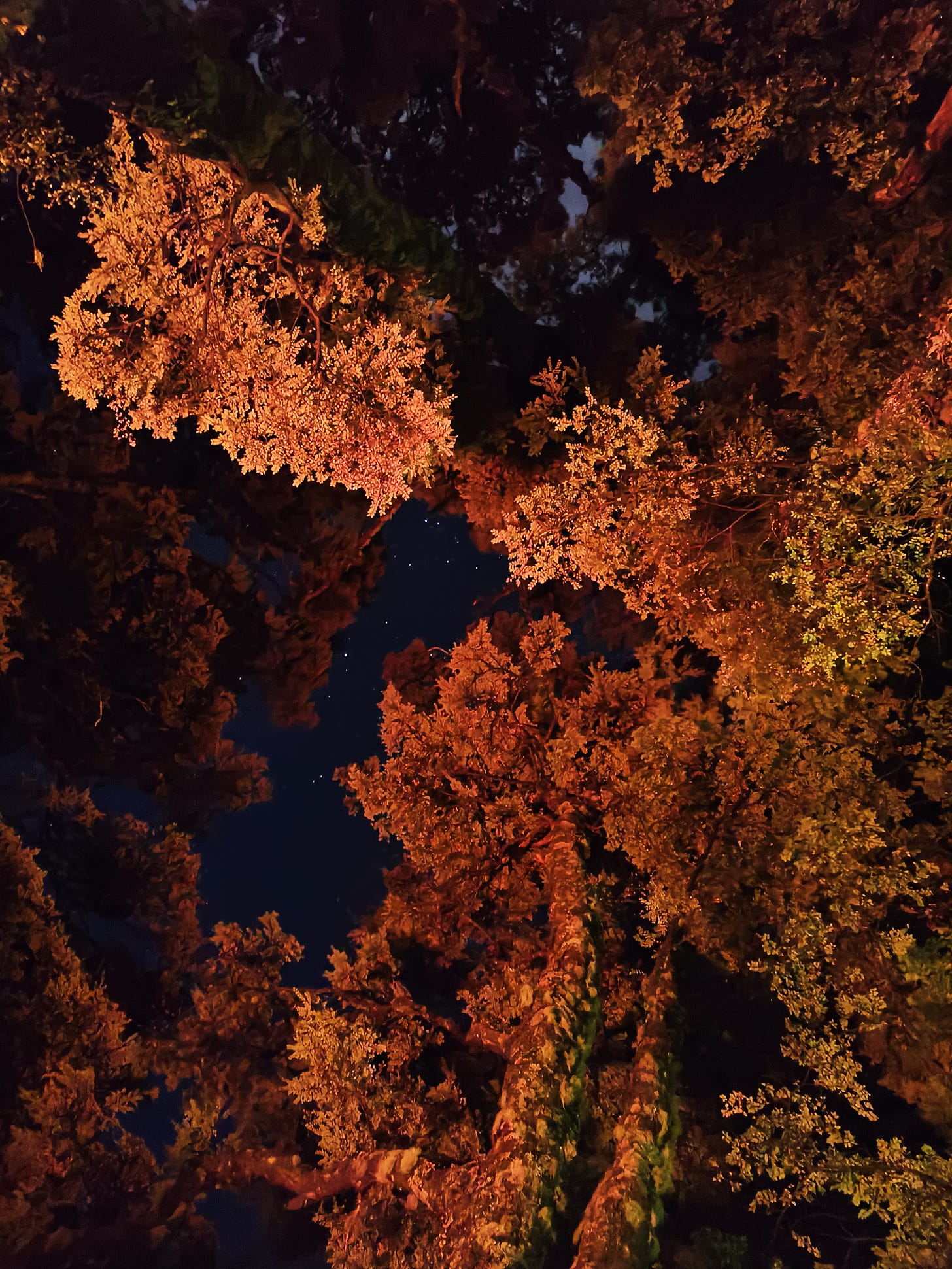
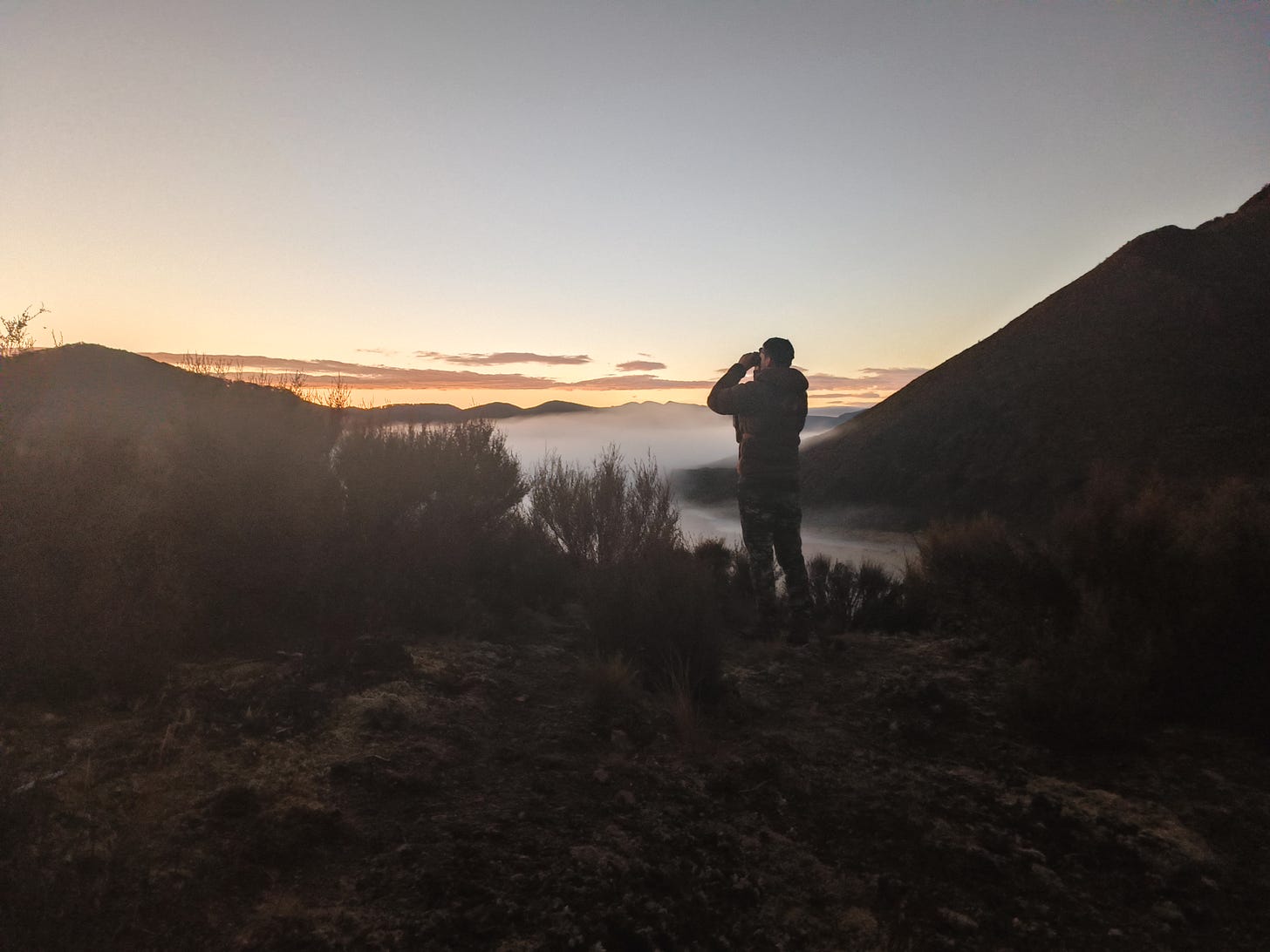
Animals of any species -- including humans -- are most fully alive when doing the things evolution, the Blind Idiot God, has optimised them to do.